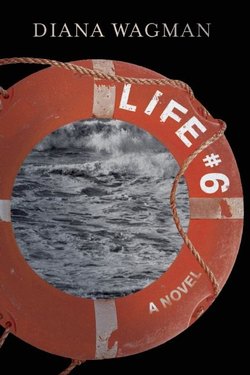Читать книгу Life #6 - Diana Wagman - Страница 8
На сайте Литреса книга снята с продажи.
ОглавлениеIt is never quiet on a boat. Riding in a car can be silent as you travel down the highway with the windows up and the night sky outside. Huddled inside a small tent in a spring snowstorm, the snowflakes make no noise as they fall on the blue nylon. Even on a foldout couch in an apartment in New York City the world can be hushed, everything outside so unimportant it seems mute. But boats are never quiet because they are never still. They rock and jiggle and complain. The wood creaks, the lines vibrate and hum, the water licks and laps and swallows. Even at night the small flags, the sails and bits of canvas, fwap and snap. It is incessant, a constant sloshing and sighing of desire, “I want to go. Let me go.”
I sat on a bench in front of my favorite statue of Venus. Her marble skin, her empty gaze comforted me. The news from my doctor had been bad. Dr. Carolyn had left a message on my cell phone, which wasn’t very professional, but then she’d been my ob/gyn a long time. I had cancer. Cancer. Just the word is ugly, two hard syllables, the hissing “c” in the middle. I was glad I worked as an educator at the Getty Villa. Glad I could turn to ancient, immutable beauty. This statue, the Mazarin Venus, Roman, circa A.D. 100, had not changed for two thousand years. Her pupil-less eyes were in eternal serene contemplation. She was beyond life or death; cancer didn’t matter to her. The hands that formed her, the very world she was created into, all gone. Now she stood among humans with cell phones taking digital photos, protected by a laser beam alarm. She didn’t weep or protest. She wasn’t smiling. She didn’t care.
The lights clicked on automatically and I looked out through the door of the gallery. The sky had turned the gray of smudged charcoal, and darker clouds were rolling in. Rain was coming, always a surprise in southern California. Beyond the sycamore trees I could see a black line of ocean. The sea always there—covering most of the planet. I turned my back to it. I’d been in LA for twenty-four years and all that time I pretended it was a desert community. I ignored the beach, the docks, the watery life. Even the occasional rain seemed an affront.
It was October 27, 2009. Almost exactly thirty years since I went to sea in a brand new 52-foot sailboat, sailed into a storm, and should have died. Five of us, the owner and his hired crew, left Newport, Rhode Island on that cloudy November morning bound for Bermuda. The storm became a hurricane and many things went wrong. In the years since, I can say I have capsized, floundered, and run aground, but those are only metaphors for the darker periods in my life. I have never been on another boat.
Why did I go? What possessed me—for I was possessed. I don’t know how to swim. I am afraid of water. I have a recurring nightmare about the deep end of a swimming pool. Why did I go? It was a boy, of course. A wild, Greek, ringlet-haired boy named Luc Kazaros. Oh, I was young and crazy mad in love. In an old photo, I am looking up at him and my face is like a slice of just baked bread, soft and white and open. If he was beside me, I had to touch him. I tried to match his breath, inhale and exhale with him, so we would share the very same air. We met in a college modern dance class. I was a freshman dance major. I came in and Luc, a senior and a star in the department, turned around and our eyes met and I was hooked, line and sinker. I was caught and never wanted to be free. I was so young. My own son has never been that young.
I dropped out of school to go with Luc to New York City so we could become famous dancers. When we signed up as crew on that sailboat we were between gigs—non-existent gigs—out of work and money, sleeping on his sister Lola’s foldout couch. In a month I would quit dancing and be terribly lost in a different kind of sea, but I didn’t know it at the time. In less than a month, he would be a junkie, but we didn’t know that either. I had told a friend Luc was “It.” Every cliché: he was the love of my life, my knight in shining armor, the man I had been waiting for. For all of my nineteen years, I had been waiting for an olive-skinned party boy with an arabesque higher than mine.
Why did I get on that boat? Why did I, non-swimmer, faint-hearted, so deeply planted in the earth, decide to go with him across the ocean? I had already followed him to New York. I would have followed him anywhere.
We set sail on November 5, 1979 when I was nineteen-years-old and on that boat I killed a man. Back on shore, I left another one to die. Telling this tale is the only cure for history.
